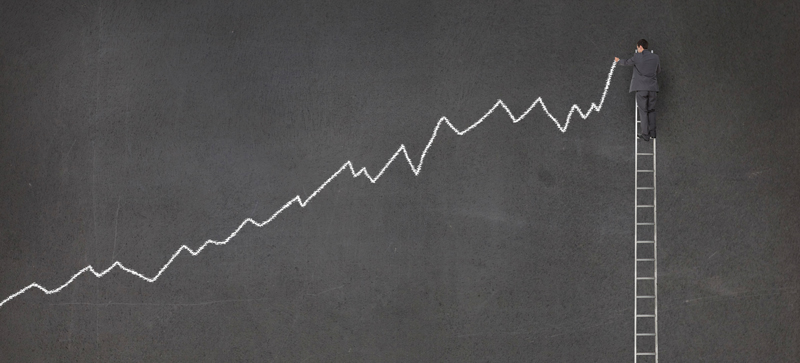After a quarter of a century of operation in New Zealand, Bartercard, the original digital currency channel for business, is celebrating past achievements and looking forward to an even more exciting future. NZBusiness went to Bartercard New Zealand CEO John Scott for a history lesson and update.
When Bartercard New Zealand set up operations on November 1st, 1992 – a year after the concept was founded in Australia – there was no Internet, no Sky Tower, mobile phones were as big (and heavy) as a brick, and MMP had yet to arrive.
On November 3rd, 2017, Bartercard New Zealand’s 110 staff, across 13 offices, enjoyed a celebratory lunch to toast the company’s achievements over the 25 years.
Some of the remarkable stories of customers who’ve grown their business using the country’s first ‘digital currency’ (aka trade dollars) network were included in the day’s celebrations.
Bartercard New Zealand CEO John Scott, who has been with the company just under five years after an extensive career in business finance and data, shares some impressive statistics compiled since the very first Kiwi business signed up.
Today around 6,000 businesses belong to the Bartercard New Zealand network (linked through the EFTPOS network), representing 15,000 cardholders. More than four billion trade dollars have been traded over the exchange so far.
“And there is no speculative value to our dollar,” explains Scott. “One Bartercard trade dollar equals one New Zealand Dollar.”
He says when the company first started here there was a lack of understanding of how the concept worked. “To a certain degree there still is today.”
The best use of Bartercard, he says, is to use trade dollars to offset a proportion of your cash spending and then use funds generated to reinvest in your business. It requires lateral thinking.
Market forces may limit the capacity to use the network at different times, across different sectors – for example, in the 12 months to June 2017, occupancy in the Auckland hotel/motel industry ran at 95 percent; the Lions Tour being one of the contributing factors.
Scott says the way members set up temporary accommodation facilities for the ‘Barmy Army’ in places like Rotorua, demonstrates their creativity and desire for growth. Also, their willingness to utilise channels such as Bartercard, which can offset ideally around five to ten percent of cash expenses, to bring in new business.
“But if you want to offset, say, five percent of your spending then you must invest five percent of your time,” advises Scott. “Sometimes people forget that.”
Education and familiarisation remain a vital ingredient of the Bartercard business – just as it did 25 years ago.
“The key is getting members to accept that they must put in the time and effort in order to make the network work for them. Our most successful members are those who continue to put that effort in – they go to networking events, introduce themselves to new members, and treat Bartercard as another business channel that can help grow their business.”
Of course, what has changed over the 25 years is the global economy and the challenge of eroding margins, explains Scott. “So, from our viewpoint [when looking at potential new members] it’s a case of ‘how can we help you trade profitably?’”
Culture of innovation
Bartercard’s culture has always been one of innovation, adds Scott. “We’ve successfully developed systems and solutions over a long period of time and deployed them globally through the Bartercard network – such as search engines and sales tracker databases.”
He says New Zealand is used as an incubator or ‘brains trust’ for new technology-driven initiatives. “This country is really a pioneer of what the future Bartercard will look like, because we’re digitally-enabled, early adopters, and known for our ability to back ourselves.”
On the subject of innovation, Bartercard has already produced a web-enabled search app. Early next year it plans to introduce a mobile-enabled app in New Zealand with all members’ products and services listed, and linked to the bucqi everyday rewards programme.
Through its acquisition of The Entertainment Book, Bartercard already has the incentives market covered across the ditch. It’s about to launch a debit card on Australia’s Gold Coast that rewards members for using their trade dollars on certain transactions.
“So, the future is around convergence – products, services and rewards. Effectively arbitraging reward schemes and providing true value for members,” explains Scott. “And we’ll be leveraging off the wider group particularly in areas such as travel, tourism, hospitality and accommodation.
“Effectively the trade economy is about identifying idle capacity and, rather than giving it away, moving it in a more effective way that lets business owners reinvest in their business.”
Popularity and loyalty
Since Bartercard began operations in pre-Internet New Zealand, the world’s business community has witnessed a massive shift from offline to online – and what many call ‘information overload’.
But Scott reminds us that face-to-face is still the most effective form of communication.
“People buy people.”
The popularity and loyalty factor of Bartercard hasn’t waned over the 25 years. Seventy percent of all members have relationships that last more than four years in the exchange, says Scott. “The stickability of what we do is incredibly powerful.”
The relevance is stronger than ever too – Scott points out the value of the Bartercard community as a test environment; investing in trade dollars to grow your business in specific areas – with a view to ultimately bringing in cash business.
“It’s a way of minimising the risk of expanding your business. A third-party census of ten years’ worth of data from new exchange members, revealed that on average [overall] sales grew by 9.8 percent within the first 12 months.
“So, if you want to grow your business, here’s an effective tool.”
Bartercard’s future is about moving to digital payment solutions based on smartphone technology and apps. That move is already underway.
Today Scott describes the brand as the strongest and most successful trade exchange, pro-rata, in the world. Bartercard has a presence in the US, UK, Thailand, China, India and South Africa – with France and Israel the latest targets.
He’s excited about working with a more intuitive Bartercard platform, delivering real-time information based on the behaviours and buying preferences of members – and harnessing more processing power to deliver even better outcomes.
With the rise of Amazon and discount houses, where real service and a feeling of community can be non-existent, Scott believes Bartercard, the exchange where people physically meet to facilitate the trade of goods and services, will remain a beacon.
Just as it always has.




